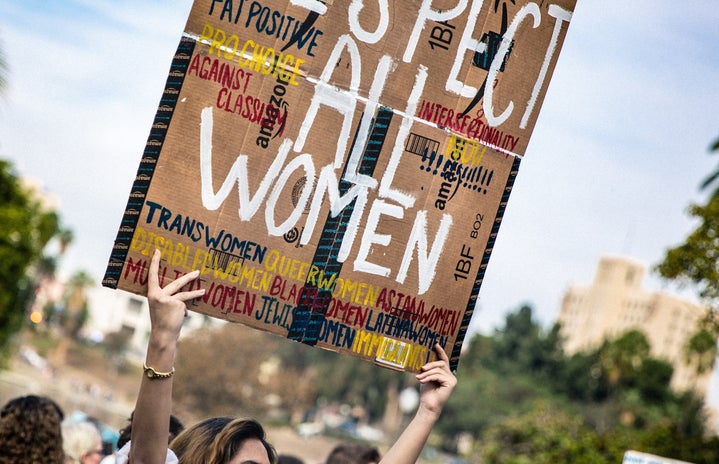At its core, feminism is about liberation: freedom from the constricting gender roles assigned to us at birth and freedom from the systems that reinforce them. It’s an ideology that seeks social, economic and political equality for everyone, regardless of gender identity. All too often, however, cis, white women from Western countries are presented as the defacto leaders of the feminist movement, and these self-proclaimed feminists may not take into account how issues of racism and transphobia compound sexism for women of color and trans women. In order for the movement to be effective, feminists must recognize and understand the unique struggles faced by trans women.

In addition to the increased threat of murder and other forms of violence, trans women are more likely to struggle with mental illness, substance abuse and suicidal tendencies than their cis counterparts. The U.S. Transgender Survey found that 40 percent of trans adults had attempted suicide at some point – this is more than ten times the national average. One study found that trans individuals are six times more likely to have a mood or anxiety disorder and three times more likely to be prescribed antidepressants and antianxiety medications than the general population.
Trans women face both transphobia and misogyny, an intersection dubbed transmisogyny. Transmisogyny refers to the negative cultural and political attitudes and discrimination directed toward trans women. This intersection of hate manifests in many ways, both on the individual and state levels. Trans women are particularly vulnerable to violence: in 2012, over half of all anti-LGBTQ homicides were committed against trans women. In interactions with the justice system in the U.S., trans women are often unfairly treated by police and prosecutors: one in five trans women have been incarcerated at some point in their lives. Trans women are also more likely to face poverty and homelessness that can be attributed to discrimination in job hiring practices. Cis feminists will never experience transmisogyny and its broad impacts, making it crucial that they listen to the experiences of trans women and uplift their voices in order to make the feminist movement more inclusive.

Despite the many complex challenges that trans women face, the federal government has done little to enact policies that affirm and protect them. Instead, there has been a recent wave of anti-trans legislation across numerous states. State legislators in Arkansas recently enacted a ban on gender-affirming care for trans youth, and dozens of other states are currently considering similar bills. Additionally, trans people still face bureaucratic and legal barriers when attempting to change their name or gender identification on important government documents, making it difficult for them to provide necessary documentation to secure housing, health care and jobs. The inhospitable and downright cruel environment created for trans people through this government action shows the necessity for trans women to be included in feminism – they need a broad base of support and advocacy against discrimination.
Trans women face obstacles unique to their gender identities and need the broad support of all feminists. If your personal feminism does not already include trans women, you need to ask yourself why. Are you fighting against trans women instead of alongside them? Are you indirectly promoting the violence they face on a daily basis? Ultimately, trans women are women, and they have always deserved a space in modern feminism. For feminism to truly uplift and empower all women, trans women and their unique perspectives need to be recognized and appreciated.



